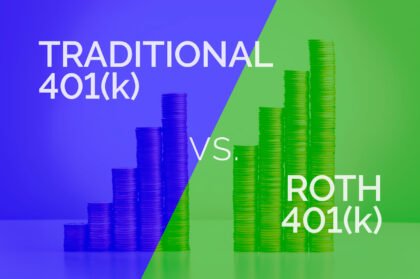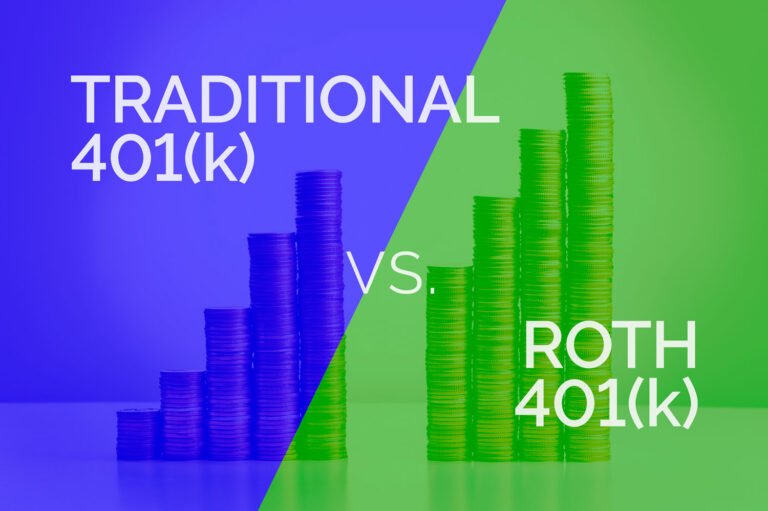Early retirement is a dream for many, offering the promise of more time to enjoy life, pursue passions, and spend time with loved ones. But stepping away from the workforce sooner than planned also presents unique challenges. Without careful financial planning, the dream of early retirement can quickly turn into a nightmare of financial stress. The key to a successful and fulfilling early retirement lies in understanding your financial situation, creating a sustainable budget, and implementing strategic investment and wealth protection plans.
In this article, we will explore essential financial strategies for early retirees, including assessing your financial health, creating a retirement budget, investment strategies, protecting your wealth, and making necessary lifestyle adjustments. We’ll also discuss the importance of seeking professional advice to help navigate the complexities of early retirement planning.
Table of Contents
Understanding Your Financial Situation
Before you can map out your financial future, you need a clear understanding of your current financial situation. This step is critical in ensuring that your resources can sustain the lifestyle you envision for your retirement years.
Assessing Your Current Financial Health
The first step in any financial strategy is to assess your current financial health. This involves taking a detailed look at your retirement savings, other assets, debts, and income streams.
- Retirement Savings: Begin by evaluating your 401(k), IRA, or other retirement accounts. These accounts will likely form the backbone of your retirement income. Calculate your total savings and consider how long these funds will last based on your expected withdrawal rate.
- Other Assets: Include all other assets such as property, stocks, bonds, and other investments. Knowing the value of these assets and how they can contribute to your retirement income is crucial.
- Debt: Take stock of any outstanding debts, including mortgages, car loans, and credit card balances. Reducing or eliminating debt before retirement can significantly ease financial pressure in your retirement years.
- Income Streams: Finally, identify any potential income streams during retirement, such as pensions, Social Security, rental income, or part-time work. Knowing where your money will come from will help you create a more accurate budget.

Creating a Realistic Retirement Budget
Once you have a clear understanding of your financial health, the next step is to create a realistic retirement budget. This budget should account for essential expenses, discretionary spending, and an emergency fund.
- Essential Expenses: Start by listing your non-negotiable expenses such as housing, food, utilities, transportation, and healthcare. These are the costs you’ll need to cover to maintain a basic standard of living.
- Discretionary Spending: Next, consider your discretionary spending. This includes things like travel, hobbies, dining out, and entertainment. While these expenses are not essential, they are often what make retirement enjoyable. Be realistic about what you can afford.
- Emergency Fund: It’s also vital to maintain an emergency fund. Unexpected expenses can arise at any time, and having a financial cushion can prevent these surprises from derailing your retirement plans.
Investment Strategies for Early Retirees
Investing wisely during retirement is crucial for ensuring that your savings last as long as you need them. Early retirees face the additional challenge of making their money last longer since they’re retiring earlier than the typical retirement age.
Diversification and Asset Allocation
Diversification and proper asset allocation are essential strategies for minimizing risk and maximizing returns in your retirement portfolio.
- Balancing Risk and Return: As an early retiree, you’ll need to strike a balance between protecting your savings and earning a sufficient return to sustain your lifestyle. This often involves a mix of stocks, bonds, and other investments. Stocks offer growth potential but come with higher risk, while bonds provide more stability but lower returns.
- Importance of Rebalancing: Over time, your portfolio’s allocation can drift from your original plan due to market fluctuations. Regularly rebalancing your portfolio ensures that you maintain your desired risk level and continue to meet your long-term goals.

Tax-Efficient Investing
Tax-efficient investing can help you stretch your retirement savings further by minimizing the taxes you pay on your investments.
- Roth Conversions: Consider converting traditional IRAs to Roth IRAs. While you’ll pay taxes on the conversion now, your withdrawals in retirement will be tax-free, which can be a significant advantage if you expect your tax rate to be higher in the future.
- Tax-Loss Harvesting: Tax-loss harvesting involves selling investments at a loss to offset gains elsewhere in your portfolio. This strategy can help you reduce your taxable income, allowing you to keep more of your money working for you.
Generating Income in Retirement
In addition to drawing down your savings, you can generate income during retirement through various investment strategies.
- Dividend-Paying Stocks: Investing in dividend-paying stocks can provide a steady income stream without requiring you to sell off your assets. This income can be reinvested or used to cover living expenses.
- Bond Ladders: A bond ladder involves purchasing bonds with different maturity dates, providing regular income as each bond matures. This strategy can help manage interest rate risk and provide a predictable income stream.
- Annuities: Annuities can offer guaranteed income for life, which can be a reassuring option for retirees concerned about outliving their savings. However, annuities can be complex and may involve high fees, so it’s important to fully understand the terms before investing.

Protecting Your Wealth
Protecting your wealth is just as important as growing it. Without adequate protection, your assets could be depleted by unforeseen events such as illness, accidents, or legal issues.
Insurance Coverage
Having the right insurance coverage is essential for protecting your financial security in retirement.
- Health Insurance: Health care is one of the largest expenses for retirees. Ensure you have adequate health insurance to cover routine medical care, prescriptions, and potential emergencies. If you retire before age 65, you’ll need to plan for health coverage until you’re eligible for Medicare.
- Long-Term Care Insurance: As you age, the likelihood of needing long-term care increases. Long-term care insurance can help cover the cost of nursing homes, assisted living, or in-home care, preserving your savings for other needs.
- Disability Insurance: Although often overlooked by retirees, disability insurance can be critical if you plan to work part-time or have a high-risk lifestyle. This insurance can replace a portion of your income if you become unable to work due to illness or injury.
Estate Planning
Estate planning is an essential part of protecting your wealth and ensuring that your assets are distributed according to your wishes after your death.
- Wills: A will is the foundation of any estate plan. It specifies how your assets should be distributed and can also name guardians for any minor children.
- Trusts: Trusts offer more control over how your assets are distributed and can help minimize estate taxes. They can also provide protection from creditors and legal challenges.
- Beneficiary Designations: Review and update beneficiary designations on retirement accounts, life insurance policies, and other financial accounts regularly. These designations take precedence over what is stated in your will, so it’s important to ensure they reflect your current wishes.
For more information, check out our comprehensive guide to family estate planning. It includes downloadable checklists and other useful documents, too, which many readers have told us were quite helpful through their estate planning journey!
Lifestyle Adjustments and Additional Income
Early retirement often requires some lifestyle adjustments to ensure your savings last. These adjustments don’t necessarily mean sacrificing your quality of life; they’re about making smart choices that align with your financial goals.
Reducing Expenses
Cutting back on expenses can free up more of your retirement savings for the things that matter most to you.
- Downsizing Your Home: If you’re living in a large house, consider downsizing to reduce housing costs, including utilities, property taxes, and maintenance.
- Finding Free or Low-Cost Activities: Look for ways to enjoy your retirement without breaking the bank. Many communities offer free or low-cost activities such as walking groups, book clubs, and community events.
- DIY Projects: Embrace do-it-yourself projects for home maintenance, gardening, or even creating gifts. This can save money and provide a sense of accomplishment.
Part-Time or Freelance Work
Earning additional income during retirement can reduce the strain on your savings and provide a sense of purpose.
- Leveraging Your Skills and Experience: Consider consulting, freelancing, or teaching in your field of expertise. These activities can be done on your schedule and can provide a substantial income.
- Online Platforms for Remote Work: Explore online platforms that connect freelancers with clients. Whether it’s writing, graphic design, or virtual assistance, there are numerous opportunities to earn money from home.
Rental Income
Generating rental income is another way to supplement your retirement savings.
- Real Estate Investment: Investing in rental properties can provide a steady income stream. However, it’s essential to thoroughly research the real estate market and consider the responsibilities of property management.
- Airbnb: If you have extra space in your home or a second property, consider renting it out on platforms like Airbnb. This can be a flexible way to earn income without a long-term commitment.
Retirement Withdrawal Strategies
Withdrawing from your retirement savings requires careful planning to ensure that your money lasts as long as you need it.
The 4% Rule and Its Limitations
The 4% rule is a common guideline for retirement withdrawals, suggesting that you can withdraw 4% of your savings each year without running out of money. However, this rule has limitations, especially for early retirees who may need their savings to last 30 years or more.
Creating a Sustainable Withdrawal Plan
A sustainable withdrawal plan considers your expected lifespan, investment returns, inflation, and other factors. You may need to adjust your withdrawals over time to account for changes in the market or your personal circumstances.
Social Security Claiming Strategies
If you’re eligible for Social Security benefits, consider when to start claiming them. Delaying benefits until age 70 can increase your monthly payment, but you’ll need to weigh this against the years you could be receiving benefits.
Required Minimum Distributions (RMDs)
Once you reach age 73, you’ll be required to take minimum distributions from your retirement accounts, whether you need the money or not. Failing to take RMDs can result in significant penalties, so it’s important to plan for these withdrawals in advance.
Seeking Professional Advice
Given the complexities of early retirement planning, seeking professional advice can be invaluable.
Benefits of Working with a Financial Planner
A financial planner can help you navigate the various challenges of early retirement, from investment strategies to tax planning. They can also provide peace of mind by ensuring that your financial plan is on track to meet your goals. We recommend a Fee-only fiduciary financial professional.
Questions to Ask a Financial Planner
When choosing a financial planner, it’s important to ask the right questions. Inquire about their experience with early retirees, their investment philosophy, and how they charge for their services. Ensure that they are a fiduciary, meaning they are legally required to act in your best interest.
In Conclusion
Early retirement is a rewarding goal, but it requires careful planning and disciplined financial management. By understanding your financial situation, creating a realistic budget, and implementing smart investment and wealth protection strategies, you can enjoy a comfortable and fulfilling retirement. Don’t hesitate to seek professional advice to ensure that your plan is comprehensive and tailored to your unique needs.
Taking Action
Ready to take the next step in your early retirement planning? Contact us for a free consultation to discuss your financial goals. Don’t forget to subscribe to our newsletter for more tips on managing your finances in retirement, and share this article with others who are planning for their future.


